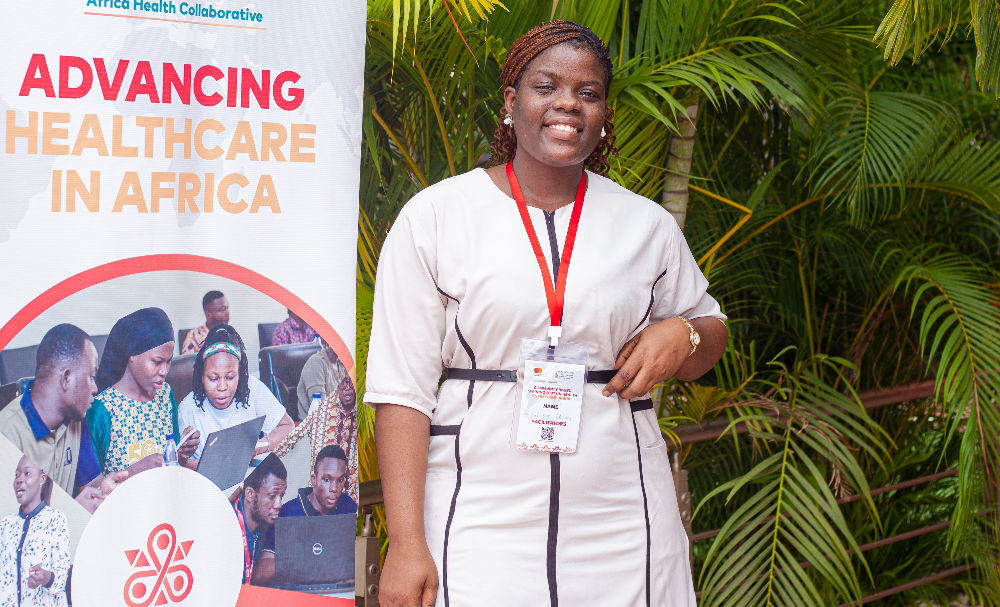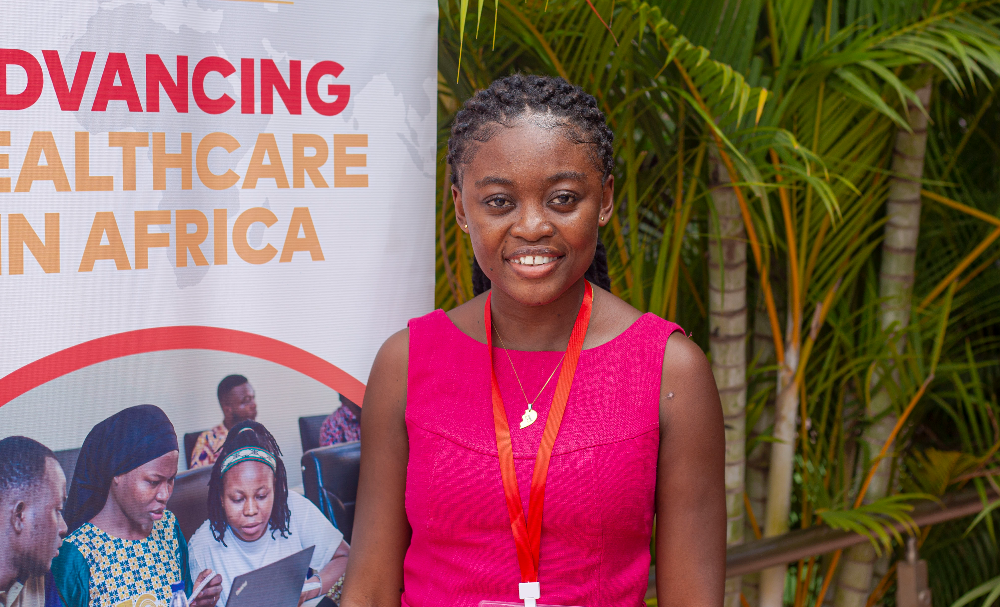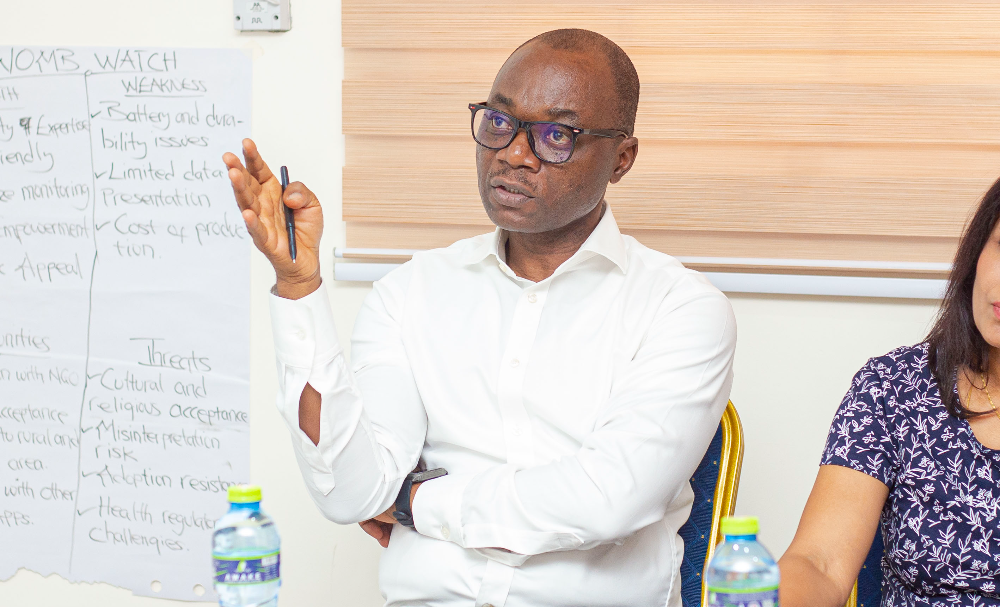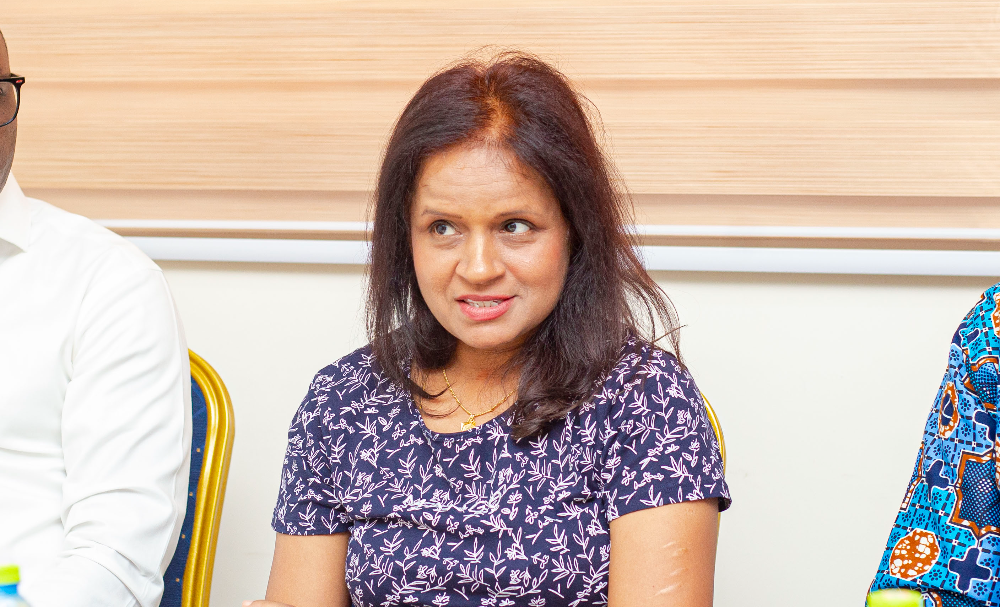Africa Health Collaborative, KNUST’s Community-Based Training in Health Entrepreneurship, organized in partnership with the Mastercard Foundation, offered participants ten immersive days of hands-on learning aimed at sparking innovation and entrepreneurial thinking in the health sector.
The training, in its third year delivered under the Health Entrepreneurship Pillar and led by Prof. Wilberforce Owusu-Ansah, culminated in a high-energy pitching session where participants presented business ideas addressing real-world health challenges. For many, the experience was transformational.
Entrepreneurship, redefined
Beveline Mensah, a Master of Science student at the University of Health and Allied Sciences’ School of Public Health, left the program with a renewed outlook on what entrepreneurship means in the health sector.

“Entrepreneurship is not just about starting a business,” she reflected. “You can be entrepreneurial by identifying and correcting mistakes in your workplace or facility.”
She was particularly drawn to the "problem-solving tree" framework, a tool that reshaped how she views health-sector challenges and sparked her ambition to explore a nutrition-focused business aimed at promoting optimal wellness.
“My confidence in pitching ideas has really improved,” she shared. “I’m especially grateful for how the training enhanced my ability to collaborate and communicate with others.”
Innovation as a lifesaving tool
For Precious Konadu Addai, a home economics specialist majoring in food and nutrition, the training reinforced the idea that innovation in health isn't about profit, it's about impact.

“Innovative thinking is a tool not just for business, but for sustainable societal change,” she said.
Although she had pitched ideas before, this training helped her refine and sharpen her approach.
“It taught me to structure my pitch better and tell a more compelling story,” She noted. “I can now articulate our business values and ideas more clearly and confidently.”
Judges Recognize potential
A panel of judges, including Dr. Isaac Tweneboah Kodua and Dr. Bhavana Singh, applauded the creativity and clarity of the pitches.

Dr. Kodua attributed the strong ideas to a deliberate choice to double the time spent on idea generation and design thinking. “There’s real potential here,” he remarked. “If the participants rethink and research their ideas thoroughly, they can create sustainable businesses that generate jobs for themselves and others.”

Dr. Singh echoed the praise: “Their delivery was strong, and their ability to handle questions was impressive. While a few pitches need fine-tuning, especially in their business models, their foundational thinking is solid.”
Beyond sharpening business acumen, the Africa Health Collaborative’s program aims to instill a mindset shift among future health leaders. These young innovators are returning to their institutions equipped not only with ideas but with the confidence, skills, and drive to reshape healthcare delivery through entrepreneurship.

















